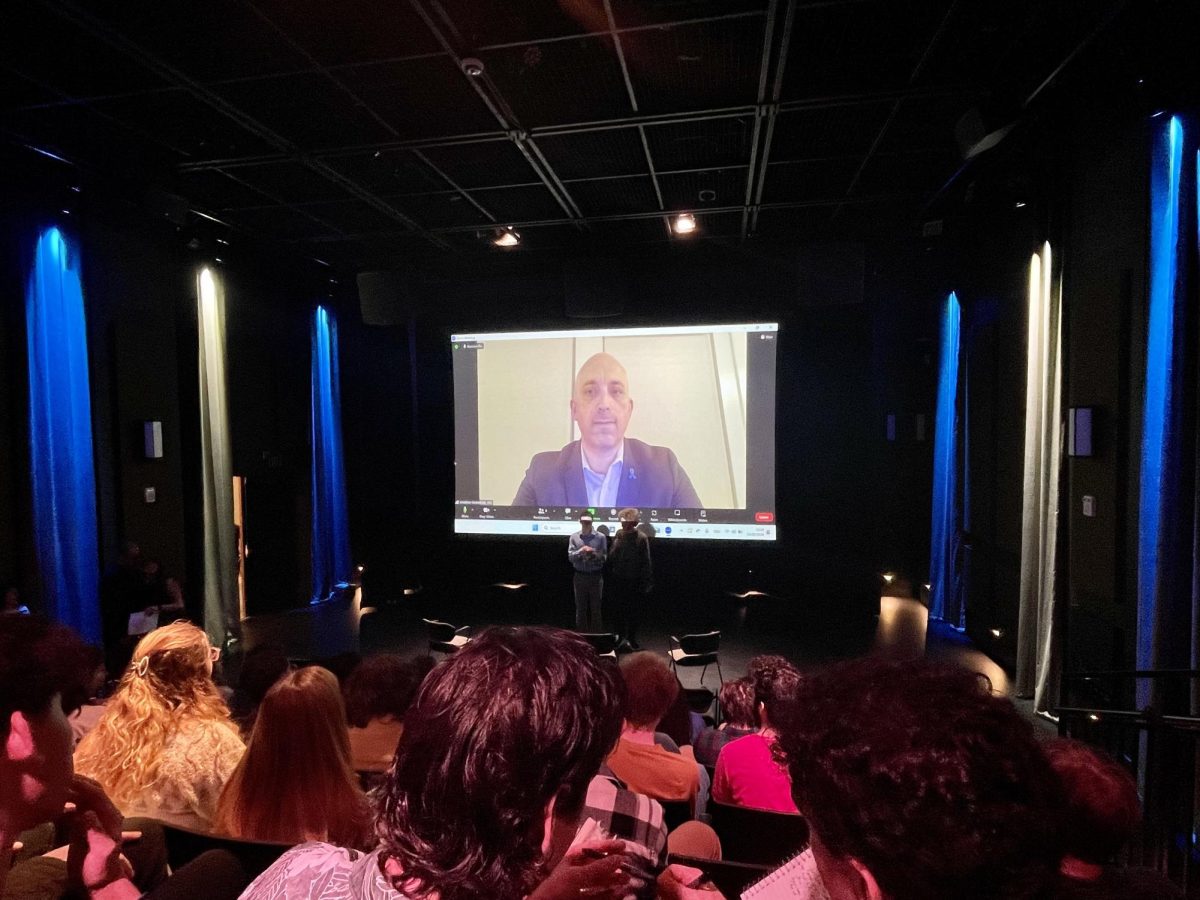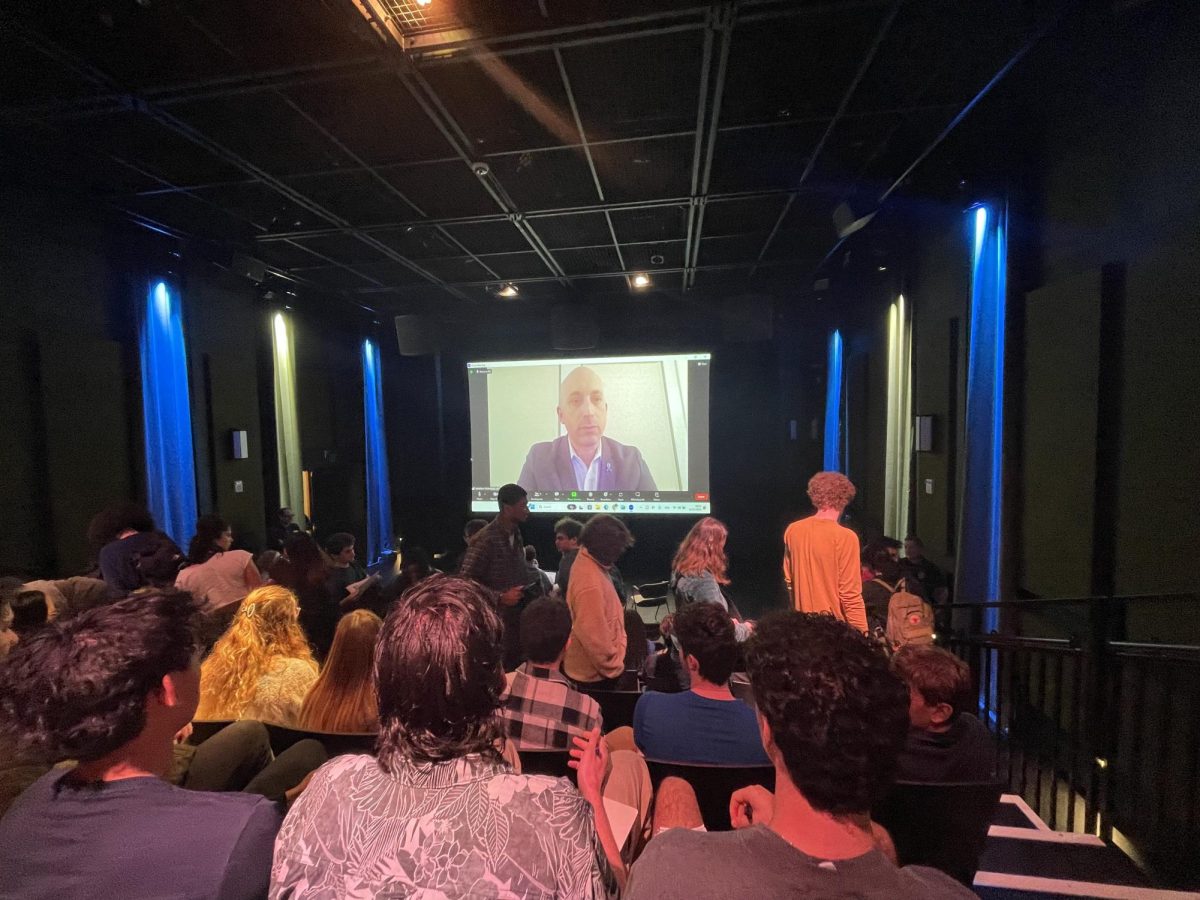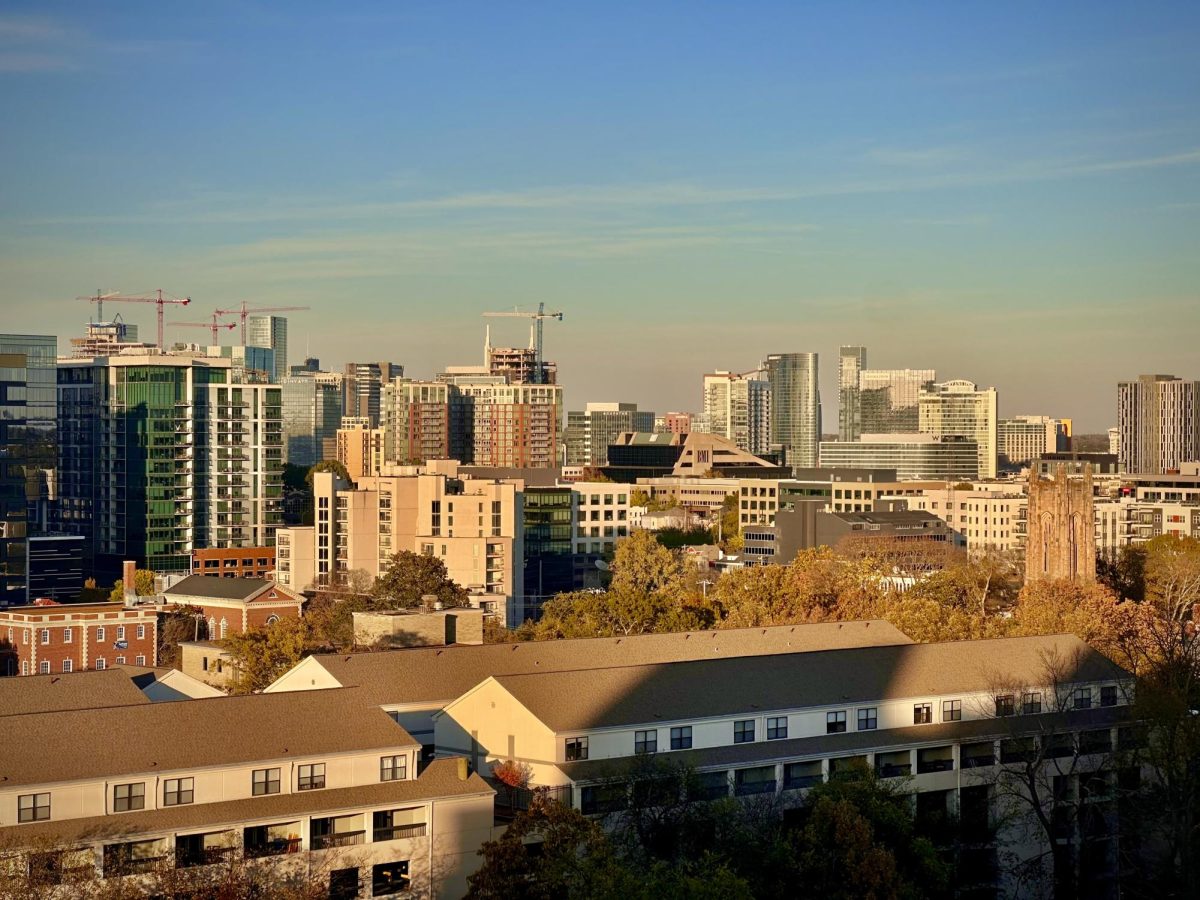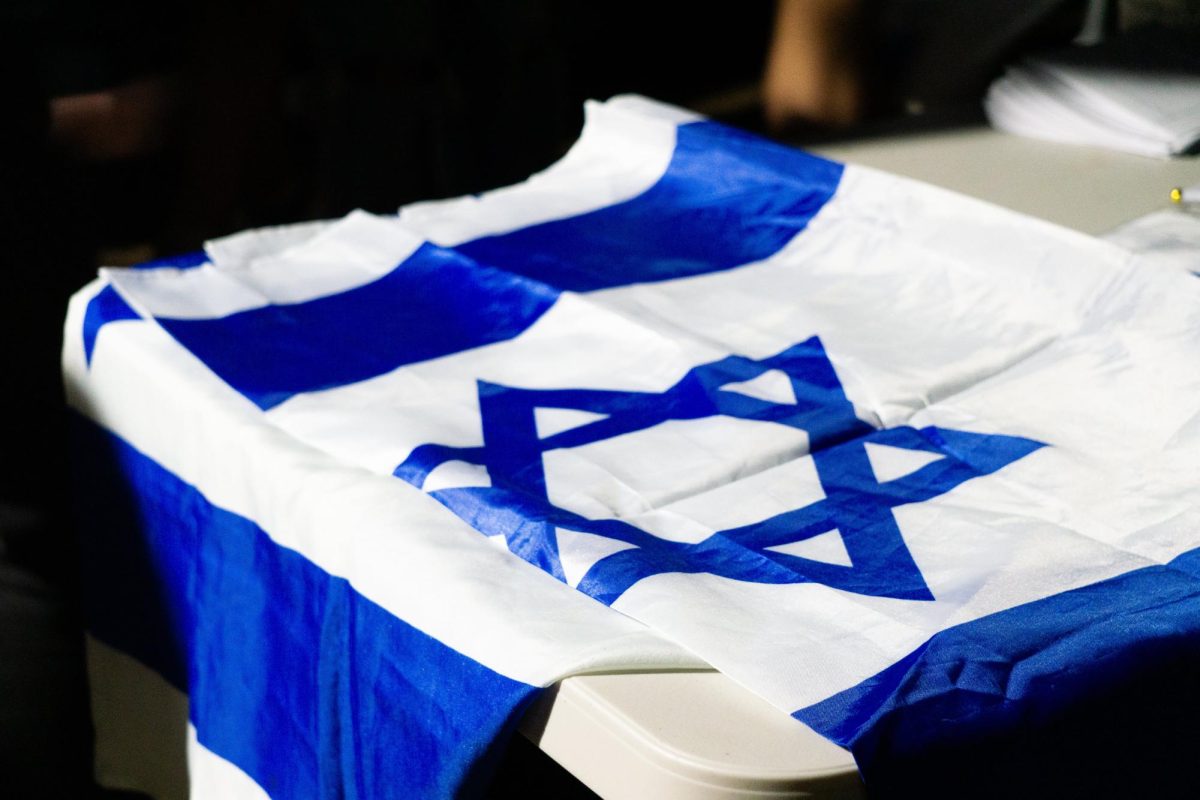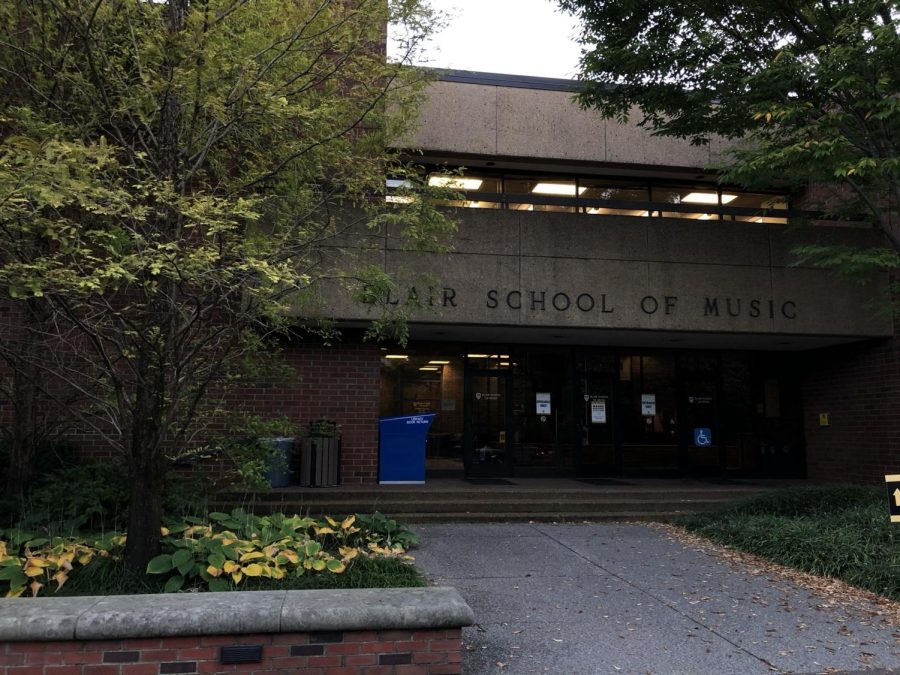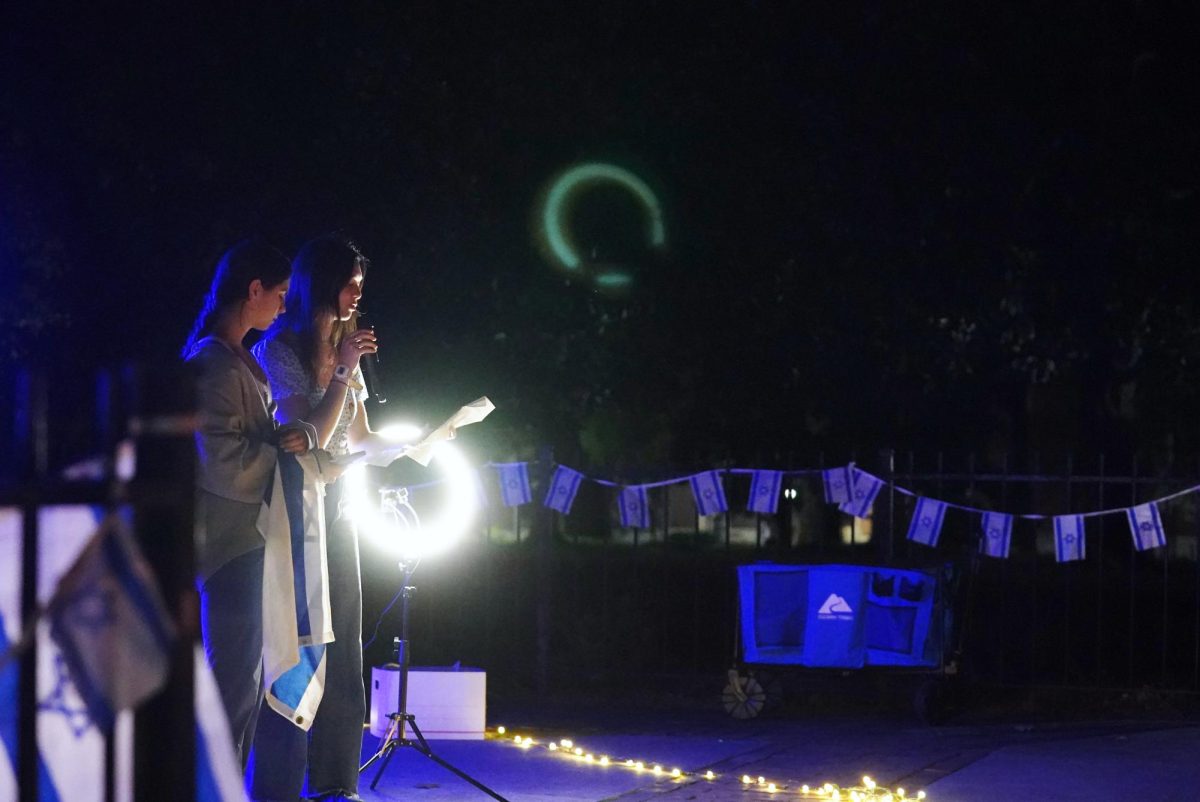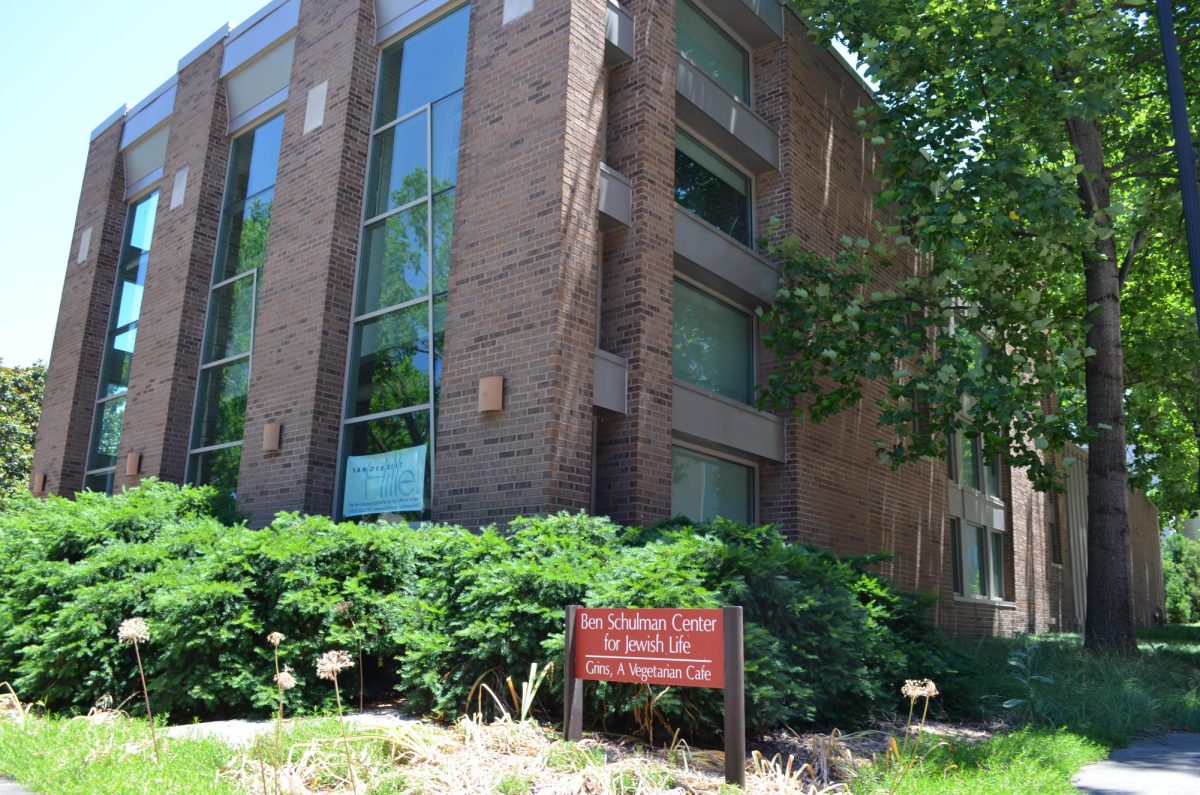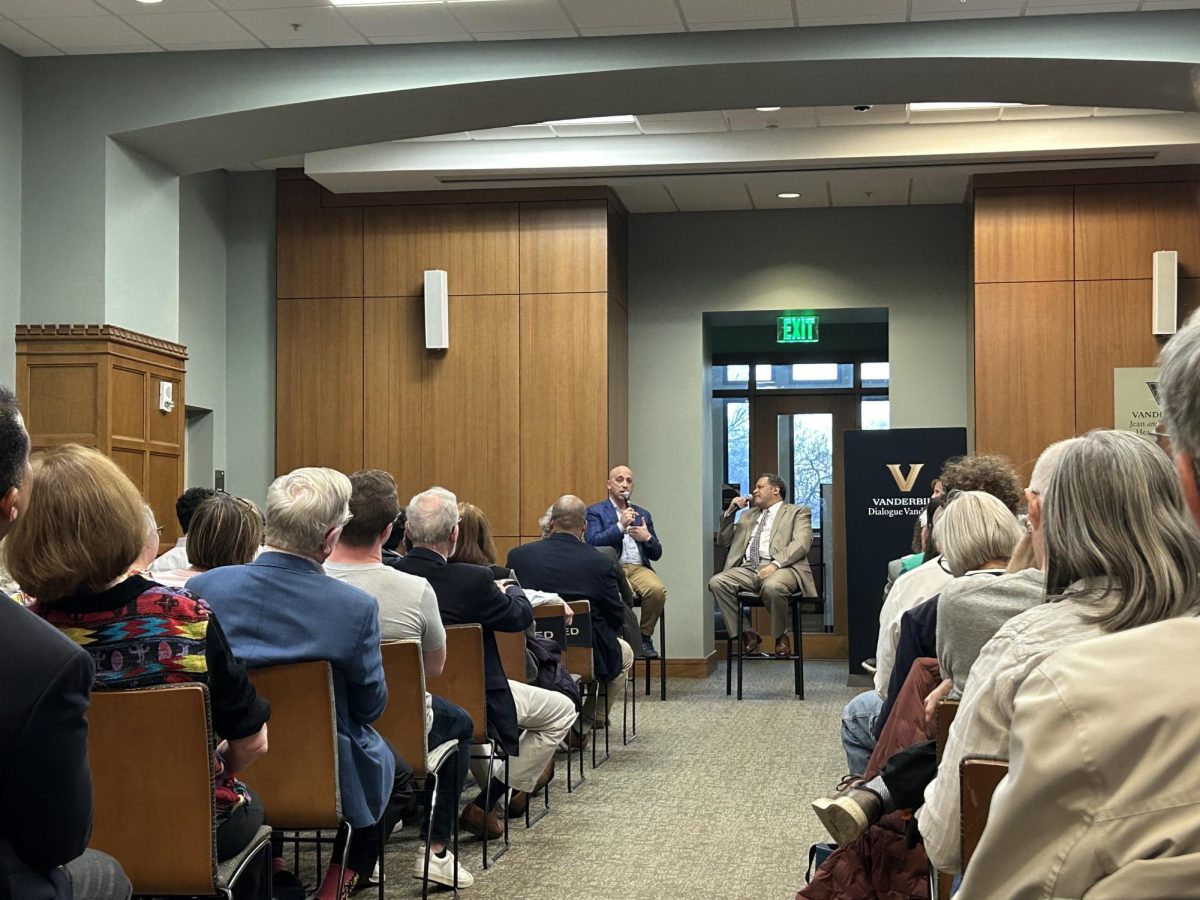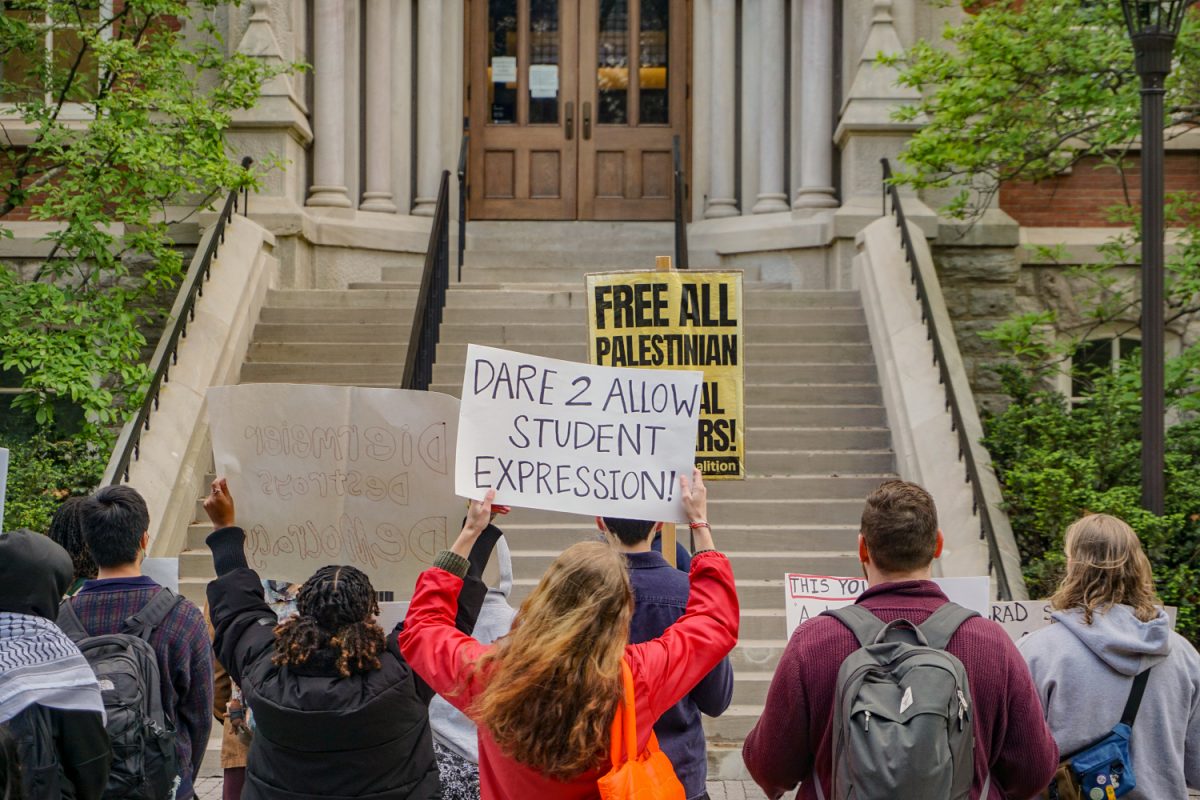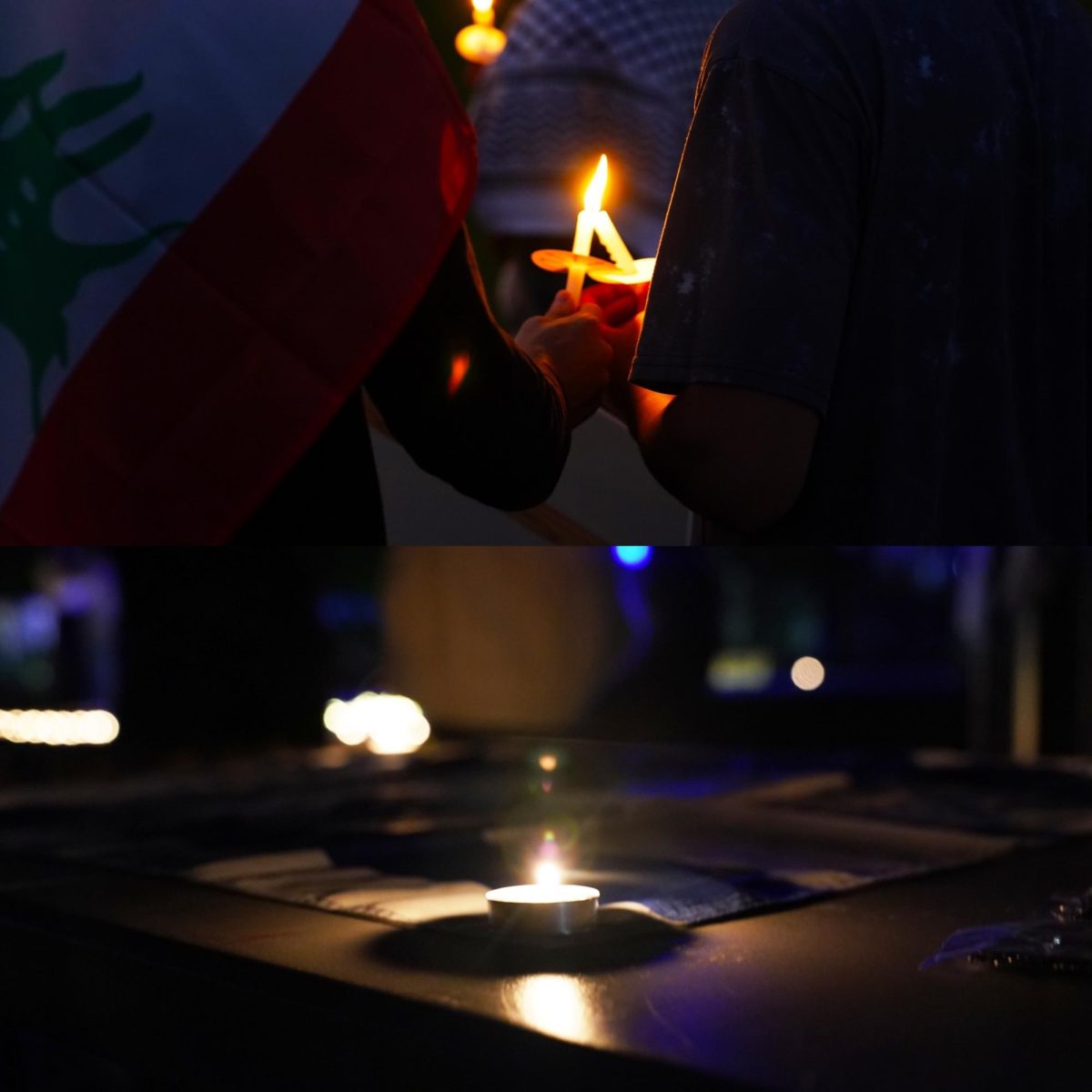Vanderbilt Hillel and ‘Dores for Israel hosted Jonathan Greenblatt, CEO of the Anti-Defamation League, for a conversation over Zoom on Feb. 15 in Rothschild Black Box Theater. Of the approximately 60 students in attendance, 20 walked out in protest of Greenblatt’s invitation to campus following Hillel and DFI’s welcoming remarks.
Greenblatt serves as the sixth National Director and CEO of the ADL, a pro-Israel organization founded in 1913 whose stated mission is to combat antisemitism and “secure justice and fair treatment to all.” Greenblatt answered pre-curated questions about antisemitism and anti-Zionism before turning to live audience questions.
JVP protest
Following the crowd’s applause for Greenblatt at the start of the event, students collectively stood up and exited the theater in a protest staged by Vanderbilt’s chapter of Jewish Voice for Peace. The walkout comes one day after JVP demonstrators protested DFI’s “Falafel at Midday” event.
JVP’s president, who has been granted anonymity to protect their safety and privacy, criticized the ADL, arguing it disingenuously presents itself as a human rights organization.
“The Anti-Defamation League, and Jonathan Greenblatt’s presence on campus, threatens marginalized communities, including Black, Muslim, queer and non-Zionist Jewish students,” JVP’s president said. “By inviting him to speak, Hillel and Dores for Israel have put marginalized students at risk.”
Hillel sent a message on Feb. 16 to the Vanderbilt Hillel community on the week’s events, claiming the protests did not deter their programming from proceeding as planned.
“Educational events like these empower both Jewish and non-Jewish students to explore the history of antisemitism and its current manifestations and will continue to be a focus of our programming throughout the semester,” the message reads.
In response to the walkout, Greenblatt remarked that he admired the “willingness of the other side to listen.” He again referenced the protesters later in the event, calling them “pathetic.” Greenblatt previously termed the national JVP and Students for Justice in Palestine as “anti-Zionist extremists” whom he believes “epitomize the Radical Left” at the ADL’s May 2022 National Leadership Summit.
“They could have been a part of this conversation, asked me really tough questions and challenged my ideas and actually made me learn something,” Greenblatt said. “If you go through all this trouble to sign up and leave, I think you’re a loser. It doesn’t bode well for them — you engage in ideas in order to be challenged, in order to be stretched, in order to be tested.”
During the audience Q&A, one student asked Greenblatt about his recommendations for responding to anti-Zionist Jewish students. The student voiced concerns over her peers using their Jewish identity “as justification for propagating hate speech.” In response, Greenblatt drew comparisons between anti-Zionist Jews and Jews who supported the Third Reich and Soviet Communists, though noted his opposition to censorship of any kind, calling “hate speech the price of free speech.”
“The anti-Zionist Jews remind us that, number one, some people don’t want to be helped. Number two, the anti-Zionists remind us that even Jewish people are not exempt from antisemitism,” Greenblatt said. “It is a shame how they are accessorized by our detractors and real enemies.”
Another student asked Greenblatt how he recommends engaging students who view themselves as “moral actors” in opposing the conflict in Gaza, saying that the same students also aligned themselves with the Black Lives Matter and Stop Asian Hate movements, as well as called out antisemitism during the Charlottesville white nationalist rally in 2017.
“For a lot of people, they see this as just part of an arc of social justice. But I think we need to take our blinders off and apply a degree of realism,” Greenblatt said. “It’s incumbent upon us to evoke those better angels to respond even to indecency with decency, to respond even to hysteria with facts and to recognize that every loss of life is a world collapsed. To those people who are protesting, don’t hate them. Don’t disrespect them.”
Defining antisemitism and anti-Zionism
Greenblatt began the conversation by citing examples of antisemitic events that have occurred at universities in recent days and months, criticizing environments that allow such hate to proliferate.
“Antisemitism is not just a threat to the Jewish people. It is a symptom of a dysfunctional democracy,” Greenblatt said. “It demonstrates a level of intolerance for ideas that you don’t like and unwillingness to wrestle with generalized principles of decency and debate in ways that once characterized university life.”
Speaking on the distinction between fair criticism of Israel, anti-Zionism and antisemitism, Greenblatt explained that criticism of any state “on the basis of its policies and leaders” is valid so long as that criticism is not directed at the state’s entire population.
“When we see people, organizations or media outlets demonizing, delegitimizing and double standards being applied to the State of Israel, that’s when it’s not legitimate criticism, but something else,” Greenblatt said.
Greenblatt defined Zionism as “the right of the Jewish people to self-determination in their ancestral homeland. Outlined by Theodor Herzl in an 1897 book, the Modern Zionist movement began in the late 19th century in response to a rise in both antisemitism and nationalist sentiment across Europe. Several different types of Zionism have since developed, with various groups at odds over Israel’s governmental policies.
“If Zionism is the right of Jews to self-determination, anti-Zionism is the negation of that right,” Greenblatt said. “To be clear, if you grant those rights to Palestinians or Muslims or any other people on the planet Earth, but you wouldn’t afford that to Jews, that is antisemitism.”
Evolution of antisemitism and anti-Zionism
Greenblatt alleged that the basis of antisemitism has evolved over the last few thousand years, stretching as far back as ancient Egypt.
“Anti-Zionism and this idea of rendering the Jewish people illegitimate has been with us for 3,500 years, since the pharaoh told us we couldn’t go back, that we needed to live as slaves; since Christ was born and the Romans told us that our religion wasn’t genuine, that Judaism was an anachronism,” Greenblatt said.
He claimed that, as time progressed, Judaism as a religion became “acceptable” as race and ethnicity were employed as means for discrimination instead. Greenblatt believes that denial over the Jewish state is the most recent iteration of antisemitism, conflating antisemitism with anti-Zionism. Critics of this stance claim that the conflation of these terms is itself a form of antisemitism as it incorrectly paints the Jewish community as a pro-Israel monolith and suggests the creation of an nation state as the only way to protect Jewish rights.
Another audience question asked about the possibility of cultivating futures in which “societies are not contingent on some level of ethnic supremacy,” to which Greenblatt denied any existence of ethnic supremacy in Israel and pointed out the diverse range of denominations, ethnicities and races among Israeli people.
Greenblatt expressed concern over future forms of antisemitism, pointing at emerging “ritual slaughter” across Europe in the forms of bans on kippot, hijabs and turbans.
“I think in the next five to 10 years, certain political forces here at home, and certain demographic and political trends in Europe are going to restrict, and may ultimately change, the course of Jewish life in those places,” Greenblatt said.
Gaza death toll and ongoing conflict
Greenblatt conveyed support for Palestinian self-determination and a two-state solution, expressing hope for what lies ahead.
“I pray every single day that this thing [conflict] will end — that soon, the loss of life will be reduced to zero, that these two peoples can go on finding a way to live to coexist together,” Greenblatt said. “They don’t have to love each other, but [live] in some degree of peace that affords both safety and security and allows them both dignity and equality.”
One audience member voiced her personal struggle between supporting the eradication of Hamas and calling for a ceasefire to prevent additional loss of innocent Palestinian lives.
“My question is: when does it stop? At what point are we like, ‘there are too many people dying?’ This is not actually for the greater good. We are not doing a good thing anymore. How do we deal with that?” the student said.
Greenblatt expressed his condolences for Gaza’s high death toll — which has surpassed 28,000 according to the Gaza Health Ministry — but called the loss of life “inevitable” due to the region’s “complex and dense urban environments.” He further pointed to the price he believes Israel is paying in terms of alleged disproportionate negative media coverage.
“That [inevitability] doesn’t make it okay, that doesn’t make it right. That doesn’t change, again, the heartbreak,” Greenblatt said. “I think Israel is paying a price in terms of the way the public and the media covers it specifically.”
Student reactions
First-year Becca Carp called the event “inspiring” and praised Greenblatt’s passion and openness.
“I didn’t know he was going to come out and say ‘I’m pro-Palestinian, and I believe in a two-state solution,’” Carp said. “I found it really encouraging and hopeful to see more people like that as the ones spreading their voices — we need more of that.”
First-year Griffin Unger conveyed appreciation for Greenblatt’s attention to “both sides” of the Israeli-Palestinian conflict, as well as regret toward the students who participated in the walkout.
“I think a lot of people that left today would have really benefited from staying, listening to his viewpoints even if they oppose their own, asking him questions, challenging his views, learning what he has to say about it and seeing if they can change his mind or if he can change theirs,” Unger said. “Open dialogue is very important and something I very much support.”
Parker Smith contributed reporting to this piece.

